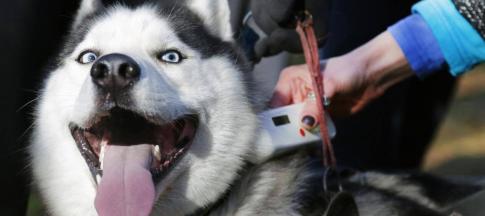
Premium? Amendment? Quote? Pet insurance wording can be confusing, but you deserve to understand what you're paying for.
We’ve made this handy list to help you bust the jargon.
Advertising costs
The cost of advertising in your local newspaper or other types of media to find your missing pet.
Amendment
Any change made to your policy – by you or us.
Authorised insurer
An insurance company selling insurance in the UK and is authorised and regulated by the Financial Conduct Authority (FCA).
Behavioural illness
A change to your pet’s behaviour because of a medical issue that couldn’t have been avoided with training or medicine.
Behavioural modification
Training by a vet or certified behaviourist to change your pet’s behaviour.
Cancellation
When you end your insurance policy before the pre-set policy end date.
Complementary medicine
Additional medicine that your vet recommends to help your pet’s recovery, such as hydrotherapy or acupuncture.
This usually comes alongside more traditional methods like surgery and medication.
Cranial cruciate ligament
An important joint in a dog’s knees that helps stabilise their legs. These joints can be very prone to injury in certain breeds.
Elective treatments
Routine treatments like worming, flea treatments and declawing that aren’t related to any medical condition or injury.
Euthanasia
Having a vet humanely end the life of your pet for medical or moral reasons. You can learn more about this in our pet farewell cover guide.
Financial Conduct Authority (FCA)
The FCA is the UK's financial watchdog. It makes the rules and checks in on financial services companies, including insurance companies.
Fixed excess
The amount you pay towards the cost of a claim. This amount can change depending on what you’re claiming for. These costs are broken down in your policy schedule.
Homeopathic treatments
Non-vet recommended treatments and vaccinations. These aren’t covered by Admiral policies.
Insurance Premium Tax (IPT)
A government tax included in the price of your insurance. Find out more about IPT.
Lifetime policy
Cover that includes a fixed amount of money available to cover your vet bills. These policies are ‘lifetime’ because they can be renewed every year.
The amount you can claim resets each year.
Period of insurance
The length of time your pet is insured for.
Policy schedule
This document names the policyholder and sets out your cover details. It also includes the fixed excess you might pay during the policy (you may have a separate excess for third party liability claims).
Policy term
The length of time your insurance is valid.
Pre-existing conditions
Something that may have been identified by a vet, be under investigation by a vet, or is otherwise known to you before your policy starts. This could be diagnosed or undiagnosed.
Premium
The cost of your cover - whether that's monthly or yearly.
Quote
The price you’re given for insuring your pet when you contact an insurer, including any specific terms and conditions.
Reward costs
Cover for a suitable reward that’s offered to help find your pet when it's lost or stolen (and isn’t found within 45 days).
Settlement
The amount your insurer pays out to you for a claim.
Territorial limits
The geographical boundaries we cover.
For our pet insurance, that's everywhere in the UK, with 30 days of cover in European countries. These 30 days can be split into two separate trips a year.
The 30 days reset every year when your policy renews.
Third Party Legal Liability
This covers you for legal damages sought by a third party over a dispute or injury because of your dog.
Ready for the next step?
Now that you've got a better understanding of the language, why not find out more about what we can do for you with our Admiral Pet Insurance?
Don’t forget that policy limits and exclusions always apply with our cover!


